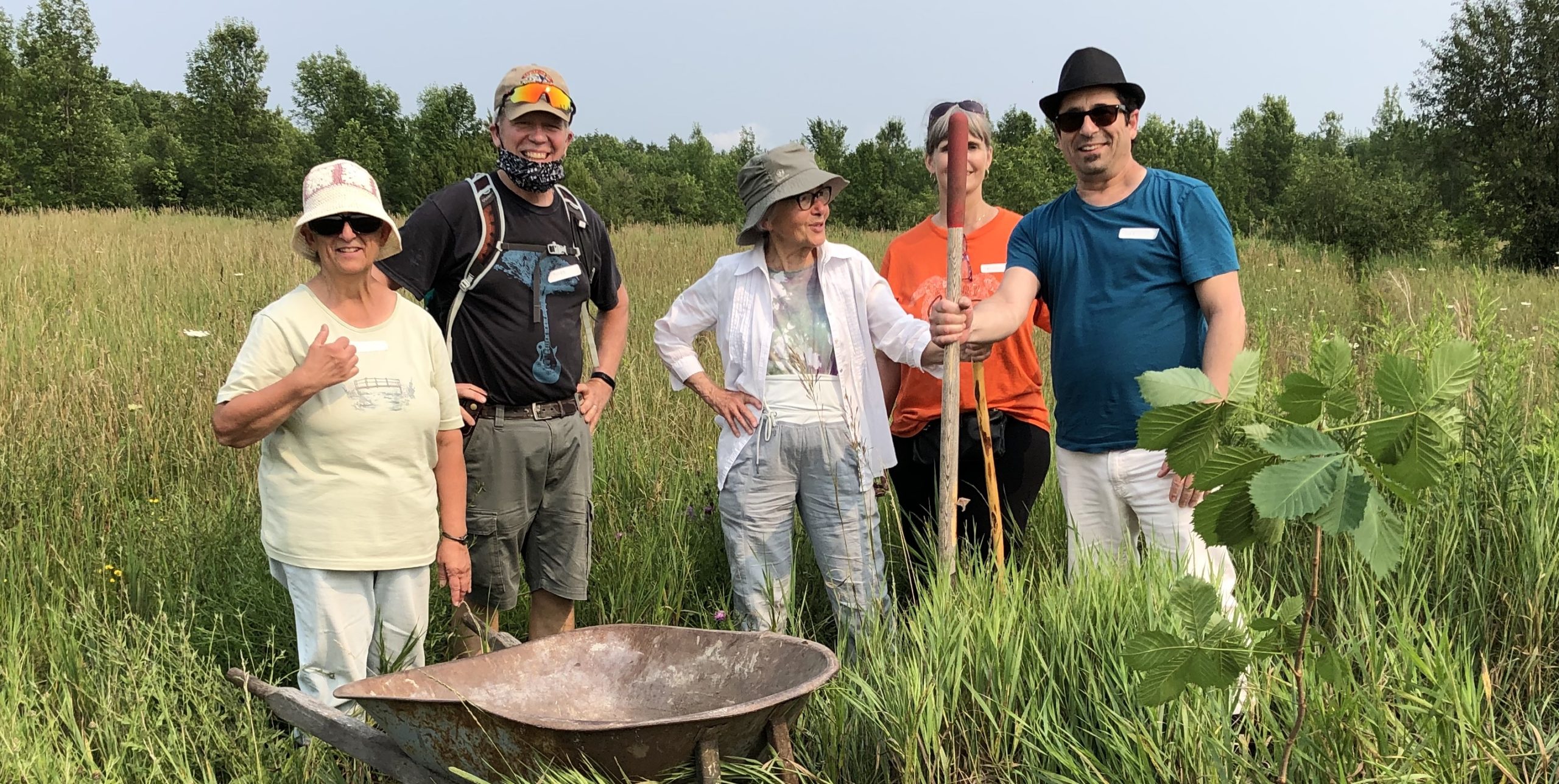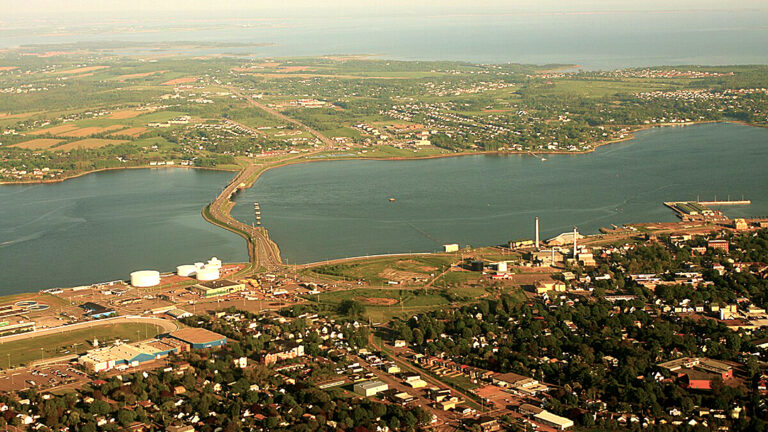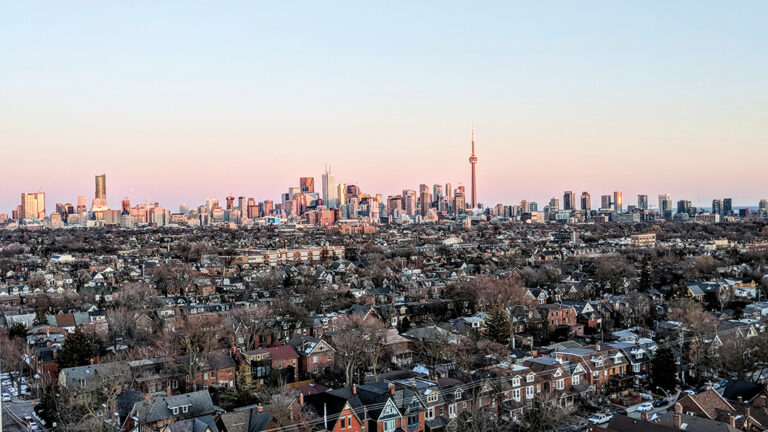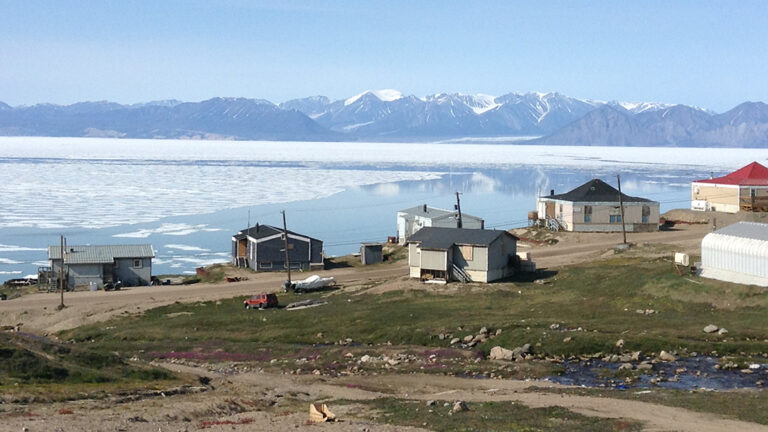Out of the mists of Owen Sound, Ontario, a net-zero land trust project is taking form that hopes to inspire and encourage ecologically sustainable forms of modern, non-profit housing communities across Canada.
Lying at the foot of the Bruce Peninsula in rural Ontario, Owen Sound is a haven for nature enthusiasts, boasting winding rivers, vibrant parks and extensive trails. Yet a shadow looms over this rural town about 200 km northwest of Toronto.
“Like [many] Canadian cities, we are facing a housing crisis that’s related to the pressure on the market and record-low stock available,” relates Zoë Thurling, a board member of the Glassworks Cooperative.
“I have heard stories of, you know, 10 people [living] in an apartment, so the need is great. For example, over the past year, housing prices have [jumped] over 96%. It was a crisis pre-Covid, and now it’s an emergency. So a big part of [the] project was asking: ‘How can we help address this, but how can we make it so we’re not repeating mistakes made in the past?’”
The Glassworks Cooperative is working toward building as early as 2023. It is set to be the largest, net-zero community land trust in Canada and will provide up to 300 affordable housing units, as well as services and employment opportunities.
Blueprint for a livable city
“Glassworks began as a project of the Beach Community Energy Cooperative that’s based in Toronto. They had an existing project, which was solar panels on the roof of a public school […] so it spans out of that. They helped us get our start,” explains Thurling.
In 2018, Glassworks Cooperative was incorporated to create net-zero, affordable, multigenerational living and an economic development project. Just three years later, they purchased a 46-acre parcel of land close to the Georgian College campus, healthcare and amenities, and in proximity to walking and cycling trails connecting to downtown and the Bruce Trail. In other words, a prized location.

The community has been involved since the beginning, says Kelsey Carriere, the president of the Glasswork Cooperative.
“I think one of the pieces that is so inspiring about this project, and within the housing-provision aspect specifically, is the way we’re sort of looking at common solutions to multiple wicked problems, like climate change, housing affordability, social isolation, and equity, all at the same time. We are really setting the tone for a new, holistic way of handling the housing crisis.”
The next step is to develop and gain municipal approval for a multi-year plan to develop the site for net-zero affordable housing, renewable power generation and other community initiatives.
Addressing climate change
The Glassworks Cooperative is also looking to address some of the most pressing issues of our age—climate change and the housing crisis, particularly in small cities—in a holistic way.
Since housing is a huge part of the environmental footprint, with buildings responsible for 13% of Canada’s greenhouse-gas emissions, it stands to reason that housing design and climate are closely connected.
“Most of us have absolutely no say as to how our houses are built,” Carriere notes. “And you know, most of our housing stock is old and leaky, even the newer housing stock is built with profit as a main motivator, and there’s little to meet climate goals.”
As environmental trailblazers, Glassworks Cooperative aims to provide a net-zero blueprint for other developments in Canada and abroad, meaning it will produce enough energy to be self-sufficient and maintain a balance between emissions produced and emissions extracted from the atmosphere.
“Embodying the values that people hold towards climate action in a housing project, I think it’s one of the pieces that has been really inspiring both to future residents and [other] community members,” adds Carriere.
Beyond environmental concerns, the project aims to prioritize partnerships with Indigenous housing providers in the community.
“We’ve been working hard at cultivating good relations and good conversations with Indigenous partners and listening to their needs,” says Thurling. “[We] have been in talks to help co-create this housing project, and to help co-create some training opportunities so that we have more of a fulsome response to Reconciliation.”
A first open house saw a land-blessing ceremony led by a member of the Saugeen Ojibway Nation, the traditional keepers of the land upon which Glassworks Cooperative hopes to build. And Thurling wouldn’t have had it any other way.
“We’re just trying to weave all of these conversations in the beginning, before we do anything in terms of digging.”
Concrete steps
The Community Housing Transformation Centre awarded $150,000 to the Glassworks Cooperative Sustainable Housing Project. The funding will help the organization develop a multi-year plan, establish partnerships, evaluate the energy potential of the site and lobby for municipal approval.
“The generosity of the Centre and the CMHC is absolutely a game-changer for this project. Being community driven until this point, every expense has been a contribution of the members—from buying the property to paying our lawyer and our real-estate agent, and you know, all of the administrative work…”
The grant will go to hiring a planner, project coordinator and sustainable energy consultant. Then, they will seek further funding from CMHC and the Federation of Canadian Municipalities to develop some parcels themselves.
“[The grant brings us closer to] taking concrete steps towards getting shovels in the ground,” says Carriere.



